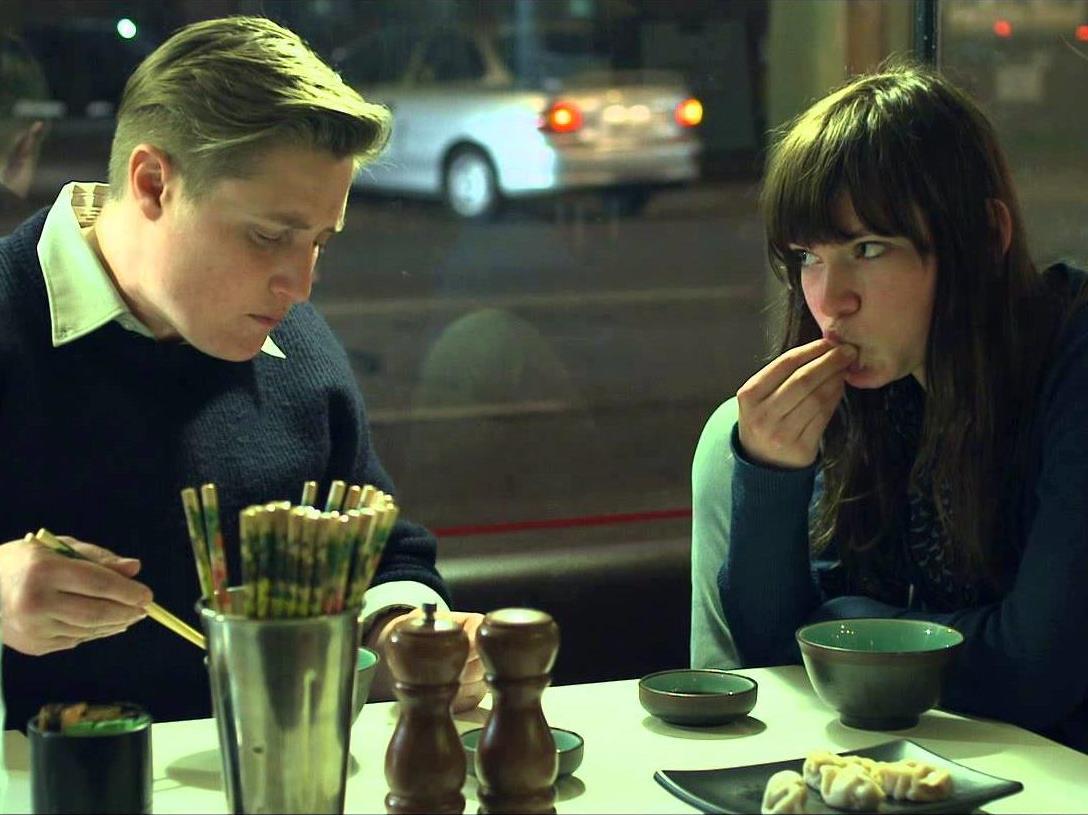If it is between 4pm and 10pm, and it is a Tuesday, then 16-year-old Billie (Tilda Cobham-Hervey) is likely spending the afternoon with her mum (Del Herbert-Jane). After being told she will be moving in with her father (Beau Travis Williams) for a year, she pledges one day a week to quality mother-daughter time. Most weeks they eat, laugh, and enjoy each other’s company. Some weeks they fight and disagree about their respective life choices. Every week, Billie shares in the challenges of her mother’s gender transition from a woman to a man.
Thus unravels the aptly titled 52 Tuesdays, a film comprised of snippets of a year’s worth of transformation. ‘A lot happens in a year,’ Billie observes in the direct-to-camera addresses that break up the stitched-together chronicle. Brief title cards bearing the date and week offer glimpses of the global state of affairs to accompany each chapter, but the feature is completely consumed by its own world as a microcosm. Indeed, a lot happens as Billie endeavours to cope: with her new home, her burgeoning maturity as a teen approaching adulthood, and with the distance that forms around the mother she has spent her young life idolising.To say that this is a confused feature intimates a careening uncertainty that undoubtedly monopolises the film, but that’s a choice not a flaw, its chaos in character, narrative, structure and style is always by design. The presentation of Billie’s experience could never conform to singular reactions, emotions, plots or packaging, nor should it. In her first fictional feature after making the devastating dance documentary Life in Movement with co-director and now 52 Tuesdays’ editor, cinematographer and producer Bryan Mason, scribe and helmer Sophie Hyde shows courage as well as insight in her experimental love of the anarchic. Her offering was pieced together as it is presented, written with screenwriter Matthew Cormack and filmed by Hyde and Mason on digital video one Tuesday at a time.
As a protagonist, Billie staggers between outwardly expressing her understanding of the issues, then acting out aggression of both the overt and passive variety. Within the story, the film flits between tenderly rendered observations of Jane becoming James; abrasive footage of Billie exploring her own sexuality with older school friends Josh (Sam Althuizen) and Jasmine (Imogen Archer); and interviews with members of the trans community. These intersecting narratives demonstrate the complexity of the competing portions of Billie’s life, emphasize the fluidity of identity and contextualise the film’s content. In the aesthetic approach, visual disarray patches together the calm and composed with the jerky and erratic to offer imagery and editing that matches the ideas. In the film’s compilation, some Tuesdays get more attention than others and reflect the reality of life’s ebbs and flows.
Nothing is neat, nor can it be ascribed to one mode of operation – and, of course, that’s the point. Messiness reigns supreme, as the performances further protest. To convey the swirling and swelling sentiments at play, 52 Tuesdays brings an entirely untested cast to the screen that relishes the intricacy and intimacy of their roles. Cobham-Hervey may be the focal point and the obvious standout with her effusive spirit, but the underplayed Herbert-Jane offers a stoic, stunning presence as the catalyst for the film’s drama in heartbreakingly honest doses.
The duo’s dynamic is delicate, purposely disjointed but adeptly conveyed, with the frequent third spoke of James’ gregarious brother, Harry (Mario Späte), not only bringing levity to an otherwise stressed and straining family relationship, but again embodying the feature’s essence of eschewing categorisation and embracing constant adaptation. In 52 Tuesdays’ affecting portrayal of flexibility and volatility, it strives and succeeds in two rare and resonant feats: smartly transcending customary conceptions of gender and sexual identification on screen, and crafting a distinctive and disarming addition to the coming-of-age oeuvre.
Rating: 4 out of 5 stars52 Tuesdays
Director: Sophie Hyde
Australia, 2013, 109 mins
Release date: May 1
Distributor: Vendetta
Rated: MA
Actors:
Director:
Format:
Country:
Release:





